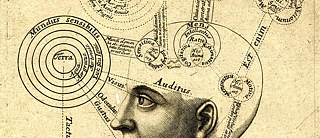Theory Course
Mozart: Music, Revolution, and the Sublime

Mozart is one of the best-known figures in Western classical music. He is also, oddly, one of the most elusive. Admirers from his time to ours, while agreeing on his stature, have disagreed about almost everything else—to Wagner he was the “genius of light and love”; to Kierkegaard a musical apostle of the demonic. He has been claimed on behalf of everything from the Catholic Church he was born into, to the Enlightenment philosophies whose creeds he adopted, the Romanticism his later music seems to anticipate, and even the revolutionary politics of his era. Each claim finds its support in one piece of music, only to be refuted by another. Which represents the real Mozart? The operatic subversions of the aristocracy in The Marriage of Figaro? The libertinism of Don Giovanni? The archaic religious terrors of the Requiem? Or is it the figure of Romantic myth portrayed most famously in Peter Shaffer’s Amadeus: “The Voice of God,” playing through the instrument of a “giggling dirty-minded creature”—an ideal of precocious genius, classical perfection, and, ultimately, artistic martyrdom?
In this course we will situate Mozart as a human figure against a complex backdrop, following him as he moves through and reflects upon an era whose paradoxes mirror his own. Through explorations of the Requiem, The Marriage of Figaro, The Magic Flute, and the late symphonies and piano concerti, alongside readings by Kierkegaard, Charles Rosen, and others, we will trace the tensions in his music between the austere piety of his upbringing, the rationalism of the Enlightenment monarchs he served, and the humanist mysticism he espoused as a Freemason. We will examine the ways in which both his music and his career, from court composer to embattled free agent to posthumously canonized symbol of musical purity, reflect his period’s rapidly changing conceptions of art, self, and society. And we will ask how Mozart’s subsequent reception, and the notions with which it is so fatefully intertwined—of the classic, and of classicism—have shaped music and culture, both as a style and as a symbol, down to the present. How, then, should we understand Mozart’s relation to his age, and his legacy for ours?
Instructor: Nathan Shields
Nathan Shields received his doctorate in Composition from the Juilliard School, where he also served for several years on the Music History faculty. Last year he was Visiting Assistant Professor of Music at St. Olaf College. His research interests include Romantic and Modernist music, with an emphasis on Wagner and fin-de-siècle Vienna; sacred music of the late medieval and early modern eras; and music’s relation to the history of philosophy and religious thought.
Details
Goethe-Institut New York
30 Irving Place
New York, NY 10003
Language: English
Price: $315
+1 212 4398700
info@thebrooklyninstitute.com
Part of series Brooklyn Institute for Social Research